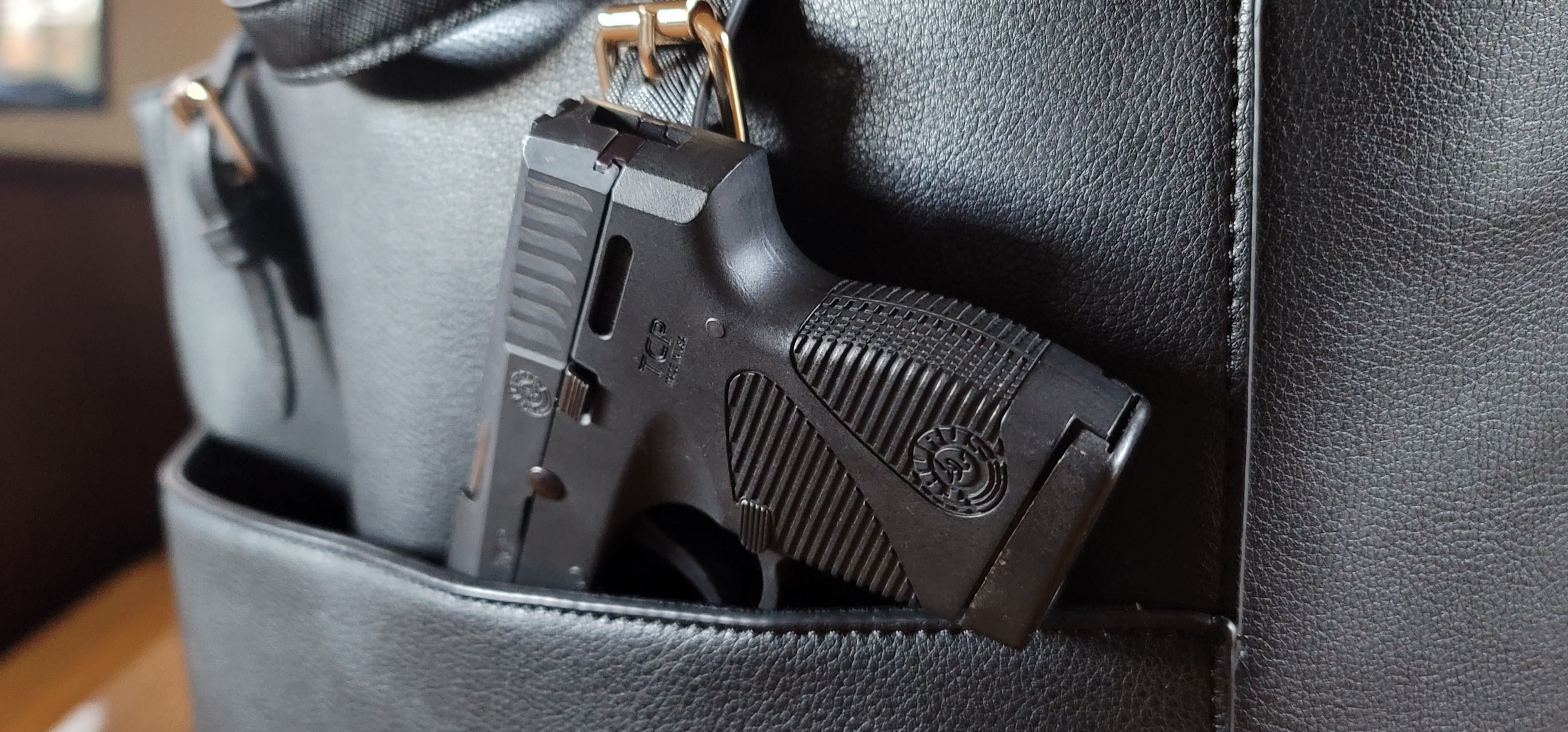The Alabama Senate has passed a substitute for the controversial permitless carry bill, putting it one step closer to becoming law in the state. The bill seeks to allow Alabamians who are legally entitled to own a gun to carry a pistol concealed on their person or in their vehicle without a permit.
The substitute for House Bill 272 (HB272) was offered by Rep. Shane Stringer (R-Satsuma). The substitute does not address anything additional other than adopting the amendments submitted in the Senate Judiciary Committee.
The bill addresses the definition of “brandishing” to make it clear that simply possessing a firearm – open or concealed – does not constitute a crime in and of itself.
Brandishing is defined as when someone is waving, flourishing, displaying, or holding an item in a threatening manner or would appear threatening to a reasonable person, with or without explicit verbal threat, or in a wanton or reckless manner.
The bill also addresses the carrying of a concealed weapon on private property without the express consent of the owner or caretaker of the property. The bill states that a person or business may prohibit someone from carrying a weapon on private property. However, the person could only be charged with a crime if they refused to leave the premises when asked.
The substitute further created a new statute in which a person must inform a law enforcement officer if they possess a firearm, only if asked. A person would not be legally required to spontaneously inform the officer of the presence of a firearm; the officer is obligated to ask.
The bill also allows law enforcement to relieve a person of their weapon if the officer has a “reasonable suspicion” that the person is committing, or will commit, criminal activity. During an investigation, the officer may run a check on a person and their firearm.
The final addition in the substitute prohibits a person from touching their firearm while in the process of a police investigation.
A common theme amongst those who spoke against the bill was a novel interpretation of the Second Amendment (2A). Most opponents of the bill claim to be 2A supporters but said that the 2A was written to allow citizens to have weapons in the home for the purpose of protecting the home. The Supreme Court of the United States (SCOTUS) has interpreted the 2A to allow for the possession of weapons to defend the home, specifically in D.C v. Heller, 554 U.S. 570. However, the SCOTUS has never given an opinion limiting the 2A exclusively to the home. This argument is common in political parlance but is not an established court precedent.
“I think our founding fathers just didn’t see it going this far,” Sen. Bobby Singleton (D–Montgomery) said. “It was really about protecting families from the militias when the war was going on, and to make sure women wasn’t being raped and people pulled out of their homes and that they could defend their homes. But I think that we’re taking this to a whole [other] level.
“I think the people that carry [guns] are scared folks, who just believe that something gonna happen to them at all [times]; just panicky,” Singleton said.
Singleton made a series of accusations throughout the debate on the bill. He implied that those who voted for the bill were beholden to various special-interest groups, were not acting like men, and needed to grow a backbone.
Sen. Vivian Figures (D–Mobile) would also accuse those who support the bill of having a callous attitude toward gun violence in the state. Figures stated she believes the bill will cause gun violence to increase in the state.
"Mark my word, the blood of those people will be on your hands," Figures said. "Because we tried to tell you."
The bill passed the Senate with a vote of 23-6 and must now go back to the House to be approved by that body before it can be signed into law by the Governor.
To connect with the author of this story, or to comment, email craig.monger@1819news.com.










